Top Rankings
Millard School District ranks among the top 20% of public school district in Utah for:
Category
Attribute
Graduation Rate
Highest graduation rate (Top 20%)
Community Size
Largest student body (number of students) (Top 1%)
For the 2025 school year, there are 2 public preschools serving 835 students in Millard School District. This district's average pre testing ranking is 9/10, which is in the top 20% of public pre schools in Utah.
Public Preschools in Millard School District have an average math proficiency score of 47% (versus the Utah public pre school average of 41%), and reading proficiency score of 47% (versus the 42% statewide average).
Minority enrollment is 22% of the student body (majority Hispanic), which is less than the Utah public preschool average of 31% (majority Hispanic).
Overview
This School District
This State (UT)
# Schools
9 Schools
408 Schools
# Students
3,255 Students
195,137 Students
# Teachers
161 Teachers
9,057 Teachers
Student : Teacher Ratio
20:1
20:1
District Rank
Millard School District, which is ranked within the top 30% of all 153 school districts in Utah (based off of combined math and reading proficiency testing data) for the 2020-2021 school year.
The school district's graduation rate of 93% has increased from 84% over five school years.
Overall District Rank
#43 out of 154 school districts
(Top 30%)
(Top 30%)
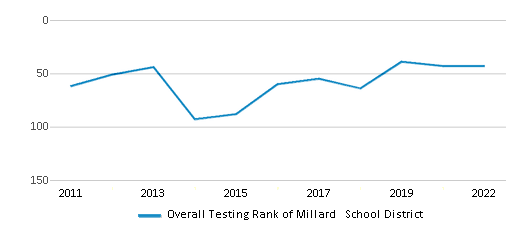
Math Test Scores (% Proficient)
(20-21)46%
39%
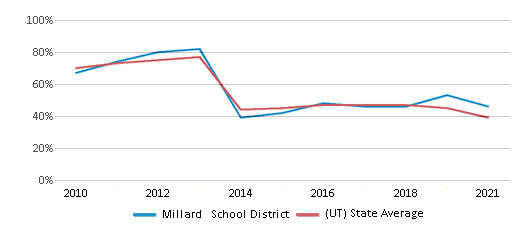
Reading/Language Arts Test Scores (% Proficient)
(20-21)45%
43%
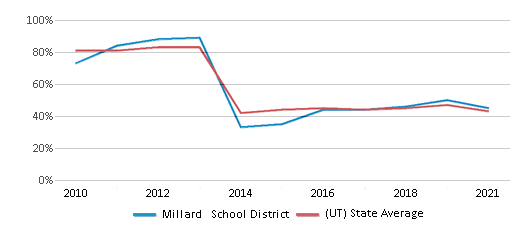
Science Test Scores (% Proficient)
(20-21)50%
45%
Graduation Rate
93%
88%
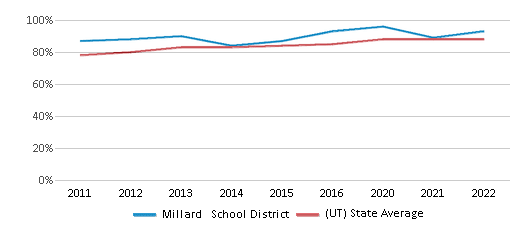
Students by Ethnicity:
Diversity Score
0.35
0.48
# American Indian Students
27 Students
2,004 Students
% American Indian Students
1%
1%
# Asian Students
23 Students
2,792 Students
% Asian Students
1%
2%
# Hispanic Students
574 Students
41,494 Students
% Hispanic Students
17%
21%
# Black Students
5 Students
2,695 Students
% Black Students
n/a
1%
# White Students
2,568 Students
134,941 Students
% White Students
79%
69%
# Hawaiian Students
3 Students
3,551 Students
% Hawaiian Students
n/a
2%
# Two or more races Students
55 Students
7,647 Students
% of Two or more races Students
2%
4%
Students by Grade:
# Students in PK Grade:
131
16,151
# Students in K Grade:
214
23,940
# Students in 1st Grade:
229
24,978
# Students in 2nd Grade:
248
26,403
# Students in 3rd Grade:
228
26,290
# Students in 4th Grade:
247
26,559
# Students in 5th Grade:
241
27,209
# Students in 6th Grade:
232
18,075
# Students in 7th Grade:
230
1,029
# Students in 8th Grade:
233
1,462
# Students in 9th Grade:
266
1,079
# Students in 10th Grade:
282
570
# Students in 11th Grade:
226
560
# Students in 12th Grade:
248
832
# Ungraded Students:
-
-
District Revenue and Spending
The revenue/student of $12,673 is higher than the state median of $10,732. The school district revenue/student has stayed relatively flat over four school years.
The school district's spending/student of $11,560 is higher than the state median of $10,829. The school district spending/student has stayed relatively flat over four school years.
Total Revenue
$41 MM
$7,309 MM
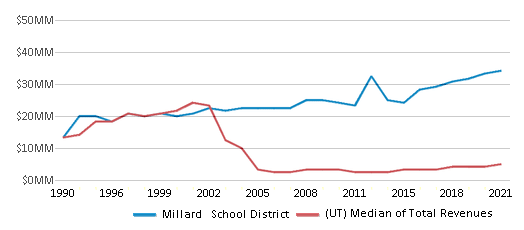
Spending
$38 MM
$7,375 MM
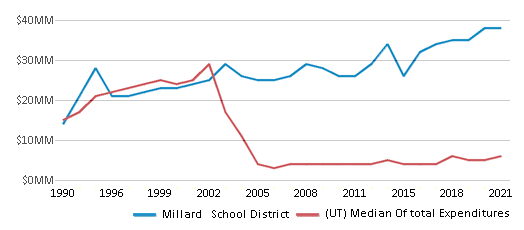
Revenue / Student
$12,673
$10,732
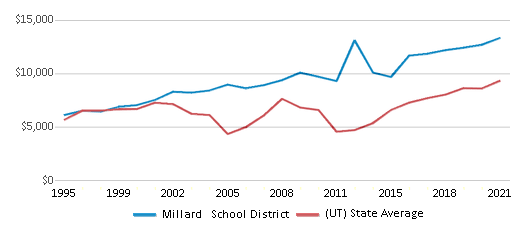
Spending / Student
$11,560
$10,829
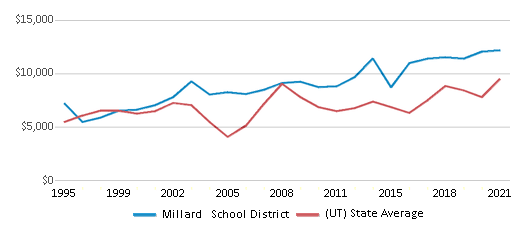
Best Millard School District Public Preschools (2025)
School
(Math and Reading Proficiency)
(Math and Reading Proficiency)
Location
Grades
Students
Rank: #11.
Fillmore School
(Math: 45-49% | Reading: 45-49%)
Rank:
Rank:
7/
Top 50%10
555 W 400 S
Fillmore, UT 84631
(435) 743-5670
Fillmore, UT 84631
(435) 743-5670
Grades: PK-4
| 493 students
Recent Articles

Year-Round Or Traditional Schedule?
Which is more appropriate for your child? A year-round attendance schedule or traditional schedule? We look at the pros and cons.

Why You Should Encourage Your Child to Join a Sports Team
Participating in team sports has a great many benefits for children, there is no doubt. In this article you will learn what those benefits are.

White Students are Now the Minority in U.S. Public Schools
Increasing birth rates among immigrant families from Asia and Central and South America, combined with lower birth rates among white families, means that for the first time in history, public school students in the United States are majority-minority. This shift in demographics poses difficulties for schools as they work to accommodate children of varying language abilities and socio-economic backgrounds.





